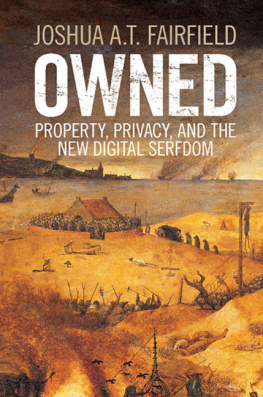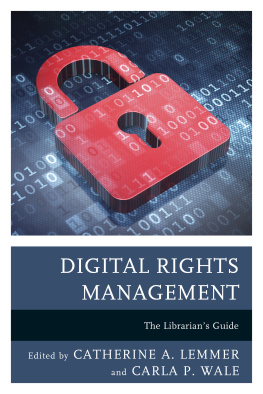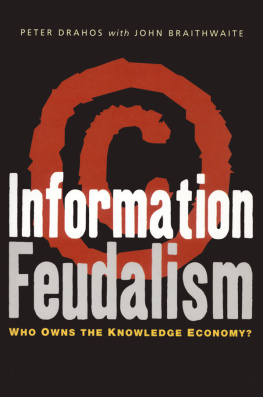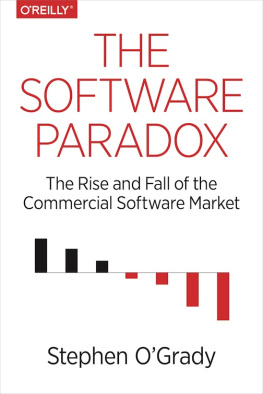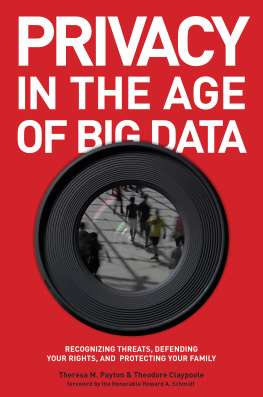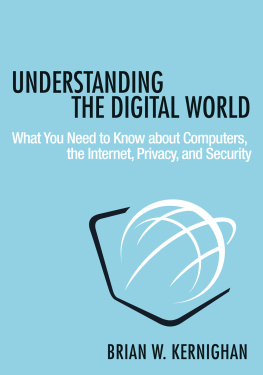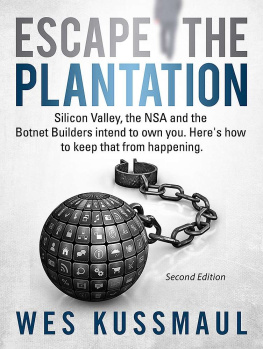In this compelling examination of the intersection of smart technology and the law, Joshua Fairfield explains the crisis of digital ownership how and why we no longer control our smartphones or software-enabled devices, which are effectively owned by software and content companies. In two years, we will not own our smart televisions, which will also be used by advertisers to listen in to our living rooms. In the coming decade, if we do not take back our ownership rights, the same will be said of our self-driving cars and software-enabled homes. We risk becoming digital peasants, owned by software and advertising companies, not to mention overreaching governments. Owned should be read by anyone wanting to know more about the loss of our property rights, the implications for our privacy rights, and how we can regain control of both.
Joshua A. T. Fairfield is a Professor of Law at Washington and Lee University. He is an internationally recognized law and technology scholar of digital property, electronic contract, big data privacy, and virtual communities. He has published articles in top law journals, and his work has appeared in the New York Times , Forbes , and the Financial Times . He is a Fulbright grant recipient and member of the American Law Institute.
Joshua A. T. Fairfield
University Printing House, Cambridge cb2 8bs , United Kingdom
One Liberty Plaza, 20th Floor, New York, ny 10006, USA
477 Williamstown Road, Port Melbourne, vic 3207, Australia
4843/24, 2nd Floor, Ansari Road, Daryaganj, Delhi - 110002, India
79 Anson Road, #06-04/06, Singapore 079906
Cambridge University Press is part of the University of Cambridge.
It furthers the University's mission by disseminating knowledge in the pursuit of education, learning and research at the highest international levels of excellence.
www.cambridge.org
Information on this title: www.cambridge.org/9781107159358
DOI: 10.1017/9781316671467
Joshua A.T. Fairfield 2017
This publication is in copyright. Subject to statutory exception and to the provisions of relevant collective licensing agreements, no reproduction of any part may take place without the written permission of Cambridge University Press.
First published 2017
Printed in the United States of America by Sheridan Books, Inc.
A catalogue record for this publication is available from the British Library
ISBN 978-1-107-15935-8 Hardback
ISBN 978-1-316-61220-0 Paperback
Cambridge University Press has no responsibility for the persistence or accuracy of URLs for external or third-party internet websites referred to in this publication, and does not guarantee that any content on such websites is, or will remain, accurate or appropriate.
To Christine, Mary, Maggie, Hannah, and Grace
Contents
Acknowledgments
This book is the result of many productive conversations over several years. I particularly appreciate the editorial guidance of Matt Gallaway and Sara Vers-luis. I am also deeply indebted to those who helped me with drafts, including but not limited to: Elliot Alderman, Samuel Arbesman, Jane Bambauer, Kiel Brennan-Marquez, Christopher Bruner, Ryan Calo, Ted Castronova, Catherine Christopher, Bryan Choi, Danielle Citron, Brett Frischmann, James Grimmelmann, Woodrow Hartzog, Chris Jay Hoofnagle, Gus Hurwitz, Margaret Hu, Timothy Jost, Margot Kaminsky, Tim MacDonnell, William McGeveran, Michael Madison, Juliet Moringiello, Christina Mulligan, Helen Nissenbaum, Christopher Odinet, Aaron Perzanowski, Jason Rantanen, Joel Reidenberg, Doug Rendleman, Matthew Sag, Andrew Selbst, Jason Schultz, Kristian Stout, Katherine Strandberg, David Thaw, and Ari Waldman. I am also indebted to the participants and discussants at many conferences and events, including Internet Works in Progress, the ILI / ISP Joint Conference at the Intersection of Privacy and Property, the University of Minnesota Faculty Workshop Series, Privacy Law Scholars, and the Telecommunications Research Policy Conference. Finally, I owe a debt of gratitude to my research assistants Daniel Martin and Paul Keith for their tireless research and support in the preparation of the manuscript, and Jacob Lester for copyediting suggestions. I appreciate financial support from the Frances Lewis Law Center at Washington and Lee University School of Law.
Introduction
There is a myth perhaps you saw a version of it in the movie Braveheart told about the abuses of feudal lords, about the droit du seigneur or ius primae noctis : the right of the lord or the right of the first night. A feudal lord supposedly had the right to sexual relations with the bride of a newly married peasant couple. The lord's power over the land on which his tenants lived and worked extended, in this story, to the power to interfere in even the most intimate and personal moments of a couple's lives. The story is just a myth there is no record of the ius primae noctis being exercised in medieval times. It seems to have developed later as a popular and salacious description of the boundless arrogance and power of feudal lords over every detail of the lives of those who lived on their land.
legal right to do this because of terms hidden deep within the app's software license. Never mind that no one reads such terms, or that no one could understand them even if they did. Standard Innovation believed that merely by installing and using its app, users agreed to permit the company to intrude and spy on communications between themselves and their lovers.
This is digital ius primae noctis . With all of the brazen arrogance of a digital feudal lord toward his peasantry, SI felt justified in conducting the most gross invasions of privacy and property, in surveilling the most intimate moments between its customers, merely because of the power it holds as the owner of the intellectual property embedded in the device, and as the drafter of clauses buried deep within its license agreement.
Despite the surface flash of a life enhanced by new technologies, the laws and logic that undergird it are made of old and problematic material drawn from a time when many owned little and a few controlled much. The digital and smart devices that surround us are legion, but we do not truly own or control them; the companies that wrote the software inside do. Intellectual property and contract law have crowded out everyday property ownership.
As I describe in this book, with every new push of software into everyday life, the owners of intellectual property assert more control over the daily lives of people who use their products.
We own and control fewer and fewer of the products that we must use to function in modern society. Many computing devices (iPads, for instance) run only those programs approved by the device seller. We cannot even tell our devices not to reveal our personal data.
To be clear, I am no Luddite. Technology itself is not the problem. The problem is when our devices serve the companies who made them rather than the people who purchased them. And as our bridges and our bodies, our school buses and our supermarkets, our keychains and our grills become colonized with digital connections and capabilities an infrastructure of networked sensors, software, electronics, and apps otherwise known as the Internet of Things the question of control becomes only more significant.

